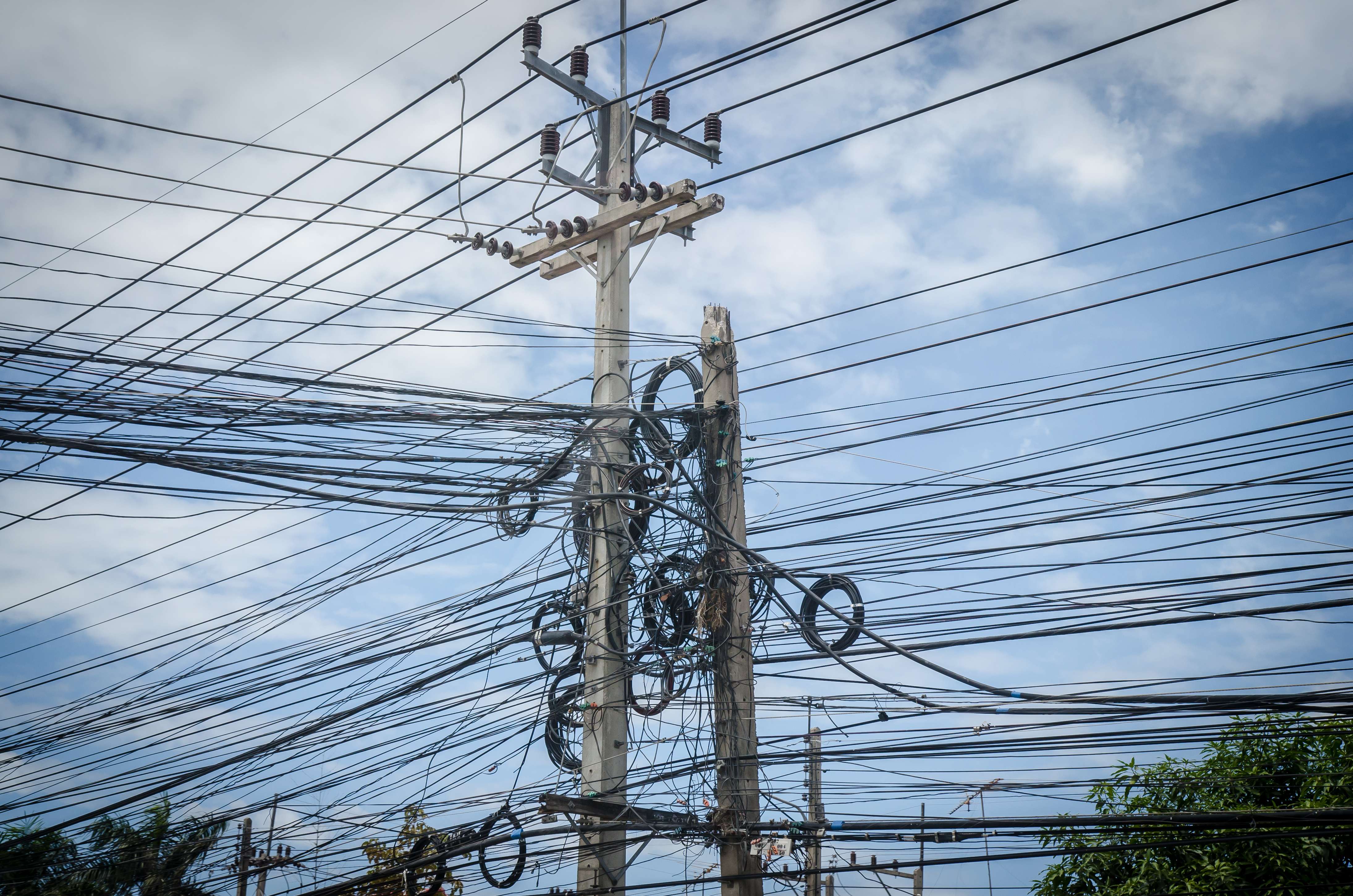Energy and Sustainability
Socioeconomic Issue in Spotlight

Energy is the cornerstone of modernization. We consume energy, in its different forms, at unprecedented levels, from the remote rural communities to the centers of modern living and industries. From waking up to alarms, brewing morning coffee, and taking hot showers, to commuting, using elevators, working on computers, and powering the tiny electronics in our pockets—it fuels our daily activities 24/7, driving productivity in economic and social development aspects. But this dependence exacts costs on the environment, and the health and wellbeing of people. Given unabated consumption and with demand growing rapidly, can we still confidently meet both present and future energy needs?
Impending energy shortage, crisis, and climate change
In January 2024, Panay Island—comprising Iloilo, Aklan, Capiz, Guimaras, and Negros Occidental—experienced a massive power outage. President Ferdinand Marcos Jr. announced that this disruption resulted in a PHP 3.8-billion loss for Iloilo province.
As we advance toward digitalization, power interruptions can significantly hinder productivity. Francisco and Abrigo (2023) found that frequent electricity supply interruptions severely affect local government revenues. Each interruption experienced by electric cooperatives can result in a PHP 10.7-billion loss for local governments due to reduced earnings from economic enterprises and business and real estate taxes. These outages not only strain local government finances but also disrupt essential services to citizens, causing a loss of PHP 3.8 billion in housing, community development, and labor and employment services.
Environmental factors further complicate this issue. Francisco (2022) found that natural calamities caused 107.4 million consumer hours of power outages from 2015 to 2021, with 94.7 million hours lost in 2021 alone. Despite improved electricity access, the supply remains insufficient, averaging 5.7 interruptions and 8.8 hours of outages per year in 2021. Luzon experienced more frequent outages, while Visayas suffered longer interruptions. Francisco urged the government to climate-proof power infrastructure to minimize damage and reduce downtime after disasters.
Climate change exacerbates energy consumption. Weather changes have affected household energy consumption, according to Dacuycuy (2017). Rising heat indices have led many to rely on the “most convenient energy source to power cooling appliances”. Higher-income households, with larger floor areas and greater financial means, are more likely to use air conditioning units and water heaters, further increasing their energy consumption.
Fossil fuels (coal, oil, and gas) are the biggest contributor to climate change. However, coal remains the leading energy source in the Philippines as of 2023. To address environmental concerns while meeting growing energy demands, efforts to diversify the country’s energy mix have intensified. Renewable energy sources, such as solar, wind, and hydro, are central to this effort due to their abundance. However, some experts argue that these sources remain intermittent and require backup from fossil fuels to ensure a stable energy supply.
Nuclear as a silver lining?
Nuclear energy presents a potential solution, as advocates consider it reliable, clean, and safer than fossil fuels. In an interview with ABS-CBN News, climate and energy journalist Alexander Kaufman emphasized that nuclear energy offers a unique advantage as a long-term and stable energy source, unlike renewable options. Kaufman pointed out that although there is strong support for renewables, there is also significant bias against nuclear energy. He noted that discussions often highlight the benefits of renewables, such as affordability, carbon-free operation, and quick deployment, without addressing the trade-offs, including extensive land requirements, the need for large amounts of minerals like cobalt and lithium, and their intermittent nature.
Michael Shellenberger, president of Environmental Progress, a nonprofit organization, supports nuclear energy for its cost-effectiveness, low material requirements, minimal waste, and high energy density. In the public forum “Why We Need Nuclear Energy”, he highlighted that nuclear energy produces far less waste compared to solar and wind farms. Shellenberger claimed that all US nuclear waste could fit in a single football field stacked 50 feet high. While acknowledging that nuclear waste remains radioactive for a long time, he argues that plastic waste, landfills, and toxic air are more harmful, potentially causing up to 67 million deaths annually. He notes that the chemicals in solar waste remain toxic indefinitely, posing a greater environmental risk.
Public perception, opinion, and politics significantly influence the acceptance of nuclear energy. Since the 1986 Chernobyl disaster, public attitudes have shifted considerably, with leading countries like Italy deciding to shut down its reactors by 1990 and Germany to completely eliminate them by 2023. The Fukushima Daiichi accident in 2011 reignited public fears, despite no official records of deaths or radiation sickness resulting from the incident.
In the Philippines, a Social Weather Stations survey revealed that 79 percent of Filipinos support rehabilitating the Bataan Nuclear Power Plant (BNPP), with 65 percent also open to the idea of building new nuclear facilities. Both the Philippine Development Plan 2023–2028 and the Department of Energy's Philippine Energy Plan recognize nuclear energy as a promising option to meet the country's future energy needs. During the President's State of the Nation Address, he called for a reexamination of the government’s nuclear energy strategy to address the growing power demands.
However, it is worth noting that there are significant objections to nuclear energy. For instance, an earlier study by Endriga (1988) outlined several concerns related to the BNNP, such as displacement of families, insufficient public information, lack of transparency, and limited information access. Critics also argue that the plant’s location is unsuitable due to the significant geological risks in Bataan, which experiences high earthquake frequencies and frequent seismic activity resulting from tectonic plate movements. Beyond environmental hazards, Endriga contended that the high costs and risks associated with the plant might not justify its benefits, even if its power share increases over time.
Navarro (2022) cautions that adopting nuclear energy requires a long-term commitment, necessitating careful planning for construction, operation, and decommissioning over a span of 100 years. Navarro suggests that the Marcos Jr. administration should not only reaffirm its stance on nuclear energy but also update the legal framework to align with international standards. While the revival of the BNPP may be technically feasible, it is important to consider the potential costs, estimated to range from USD 3 billion to USD 4 billion. Navarro cites a recent study showing that the “unsubsidized levelized cost of energy of conventional nuclear, which can be operated for a longer period and has a higher reliability factor, is at USD 131–204 per megawatt-hour (MWh)”—a more competitive price compared to gas peaking plants, which cost USD 151–196 per MWh. However, the lower cost and quicker deployment of natural gas plants, such as the San Gabriel plant, complicate nuclear energy's advantage. Navarro emphasizes that for nuclear energy development in the Philippines to succeed, it is crucial to clearly and convincingly communicate safety measures and benefits to the public throughout the construction and decommissioning phases.
Investing in energy security is vital for the country’s development, but it requires a genuine commitment rather than mere promises. Ensuring a reliable, affordable, and sustainable energy supply involves not only technological solutions but also transparent public policies. It is essential to openly communicate the benefits and drawbacks of each energy option to the public, enabling informed decisionmaking.
Addressing this issue requires concrete actions and accountability. In our pursuit of meeting the growing energy demand, it is crucial that we show respect for and protect nature, which has existed long before us.
SERP-P has several resources about energy. Here are some examples:
- Electricity Supply Interruptions and Its Impact on Local Economies
- Electricity Supply Interruptions in the Philippines: Characteristics, Trends, Causes
- Examining Energy Use and Weather Variability Through the Gender Lens
- Debating the Prospects of Nuclear Energy in the Philippines: Why We Need Nuclear Energy: A Public Forum-Proceedings
- Nuclear Energy and Third World Realities: The Bataan Nuclear Plant as a Case Study
- The Implications of Developing a Philippine Nuclear Energy Program


